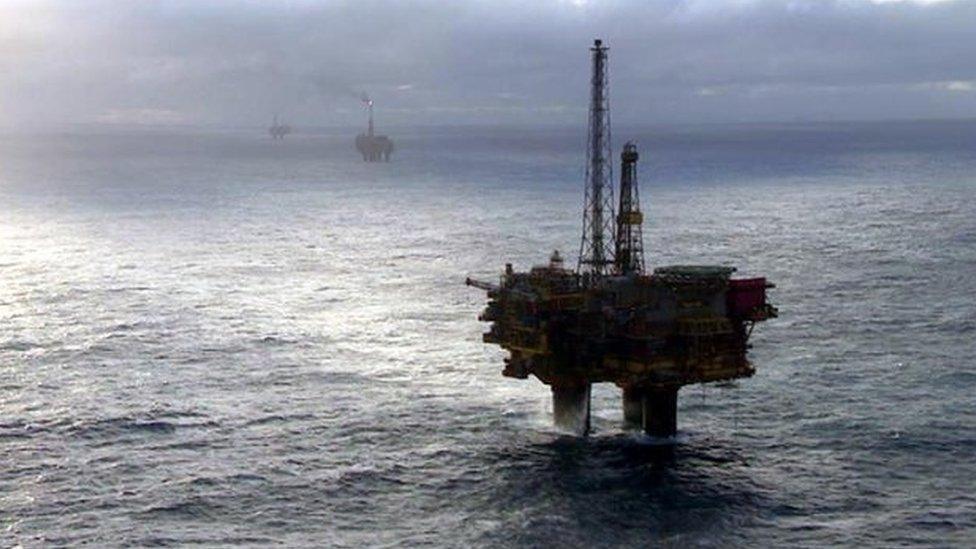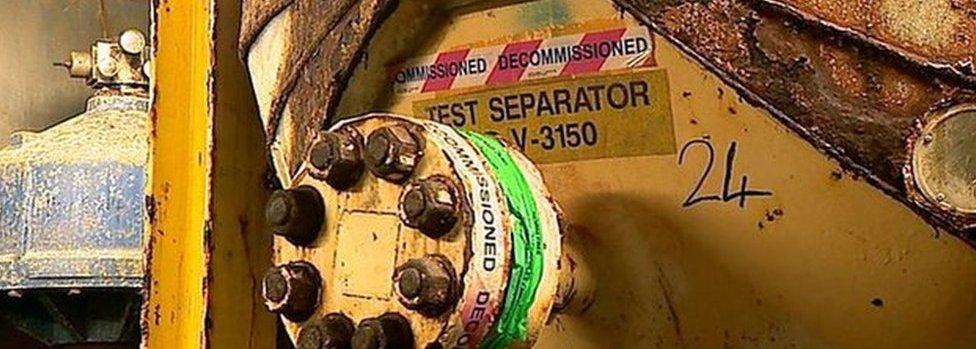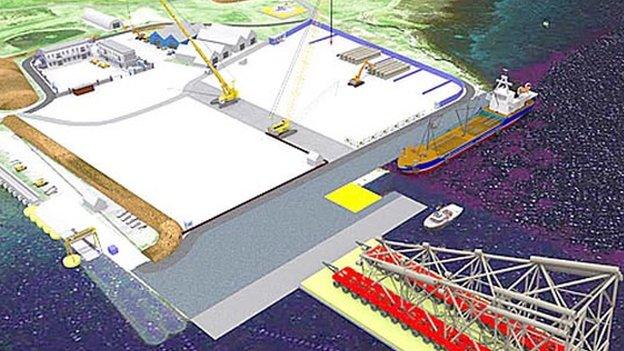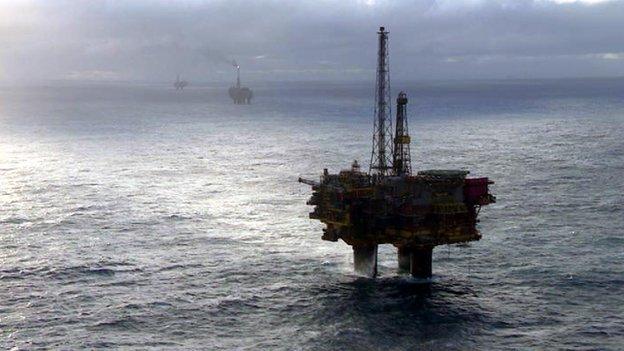First offshore decommissioning Masters degree offered in Aberdeen
- Published

A Masters degree in decommissioning offshore installations - believed to be the first of its kind in the world - is being launched in Aberdeen.
The University of Aberdeen said the aim was to train a new generation of experts.
The first students are expected to begin the course - in conjunction with Robert Gordon University - next year.
An industry conference heard last year that decommissioning could offer new opportunities for the industry.
It was projected that, over the next 25 years, the process of retiring North Sea oil and gas facilities could cost tens of billions of pounds.
It could mean hundreds of new jobs requiring a new kind of expertise in the coming decades.
'Climate right'
The new studies will focus on decommissioning areas such as engineering, project management, business, law, safety and environment.
Prof Ekaterina Pavlovskaia from the University of Aberdeen's School of Engineering said: "We are already offering a wide range of specialised Masters degrees focused on the needs of the oil and gas industry.
"The climate is right for us to launch this innovative Masters degree in decommissioning to educate the current and future work force in this important area of the oil and gas lifecycle.
"Some may ask if this course signifies an acceptance that oil and gas is coming to an end in the North Sea but that is not the case.
"Safe and efficient decommissioning of these platforms will benefit the industry for many years to come."

Analysis by Kevin Keane, BBC Scotland Energy correspondent

Sections of equipment in the Brent field are already labelled as decommissioned
This announcement marks a significant shift in the life cycle of the North Sea.
Although the University of Aberdeen is at pains to point out it is not the end of the oil and gas industry, it is a recognition that the final stage is ramping up.
Figures from the industry body Oil and Gas UK show that 21 fields ceased production in 2015.
Another 20 are expected to follow suit each year until the end of the decade.
Moving the offshore infrastructure is expected to present big engineering challenges - so the university has launched this Masters to train the next generation of decommissioning experts.

Prof Ferdinand von Prondzynski, principal and vice chancellor of RGU, added: "It is increasingly clear that there is a need for offshore decommissioning in the North Sea, as many platforms approach the end of their operational life.
"Aberdeen is known for oil and gas expertise and it is important that we harness the opportunities presented by this trend, ensuring that there is a pool of trained talent available for the evolving needs of the industry.
"Our two universities will draw on our experience of working closely with the North Sea oil and gas industry to deliver the course."
The programme is being developed in conjunction with "leading industry experts".
'Not without challenges'
WWF Scotland director Lang Banks said: "An estimated 285 platforms and over 4,000 oil and gas wells will require to be removed from UK seas over the coming decades, so it's great to hear that the UK's first degree in rig decommissioning has been launched.
"Protecting our marine environment by cleaning up after the North Sea oil and gas industry will not be without its challenges.
"However, if done right it could create thousands of new jobs and open up a new multi-billion pound decommissioning industry. Educational courses like this one will certainly help make such an outcome more likely."
A demolition company unveiled plans last month to create a facility in Orkney to decommission redundant oil and gas rigs.
Birmingham-based DSM is hoping to use Lyness on Hoy as a new base.
- Published31 August 2016

- Published28 May 2015
